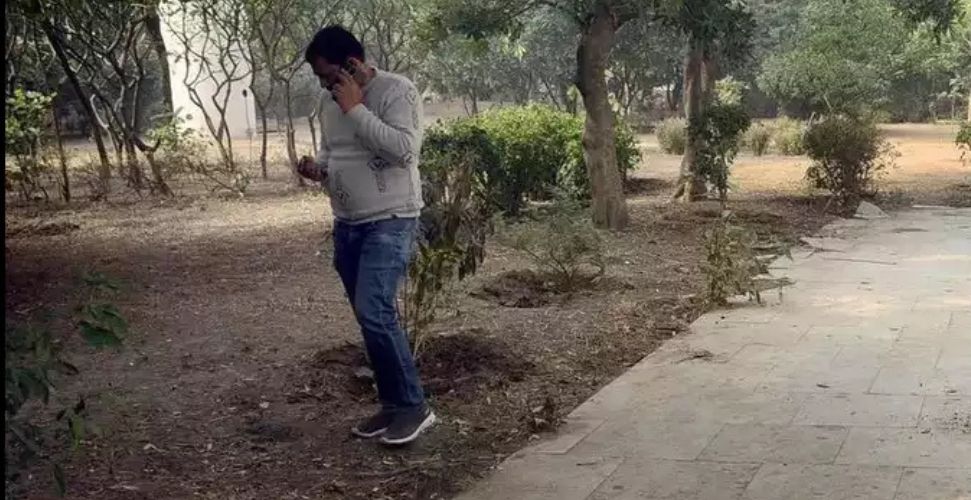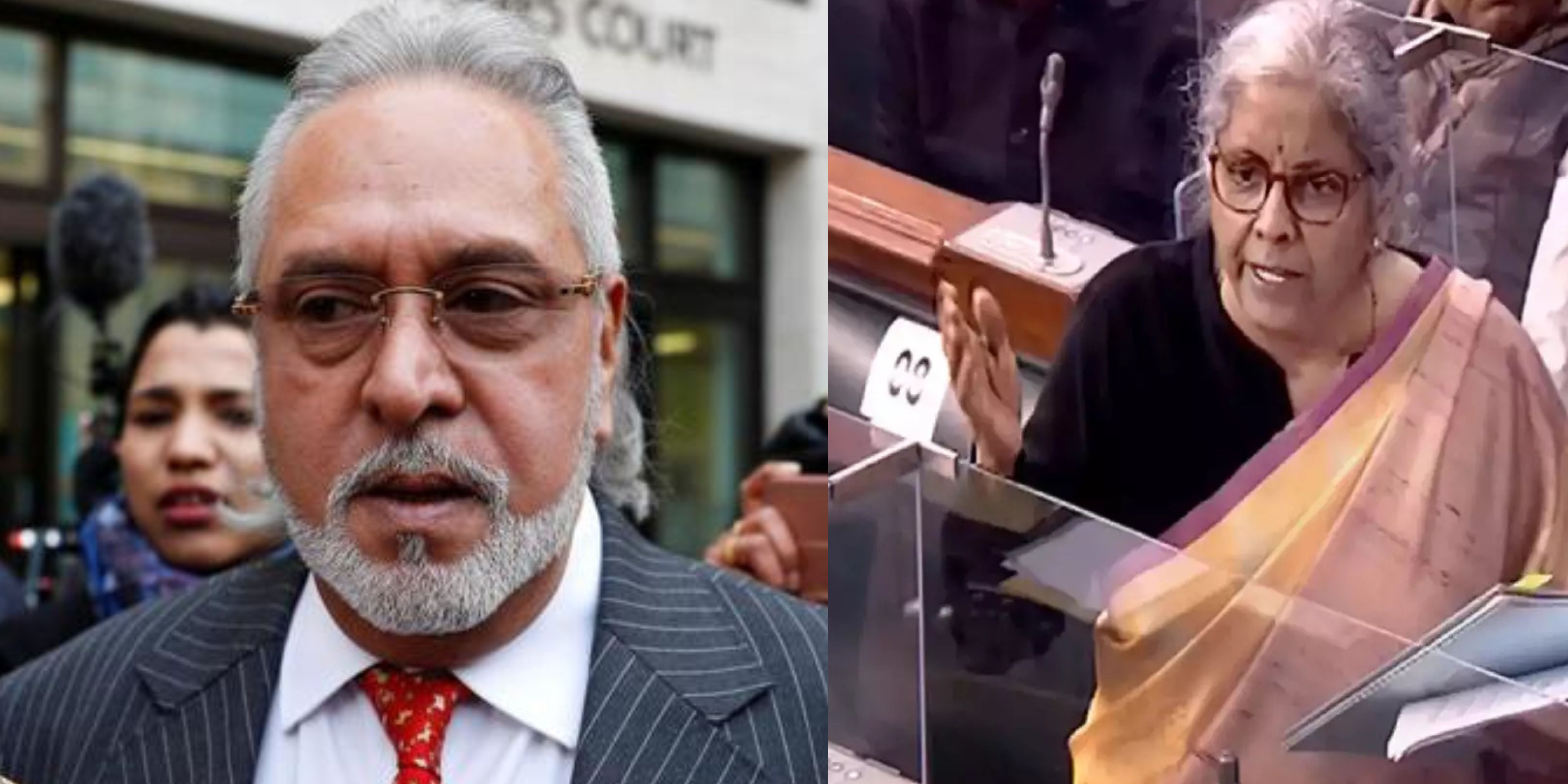Home / tv / Crime Patrol-Inspired Plot: Couple Abandons Infant to Escape Debt in Rajasthan
Crime Patrol-Inspired Plot: Couple Abandons Infant to Escape Debt in Rajasthan
By: My India Times
3 minutes read 27Updated At: 2025-01-27

In a shocking turn of events, a couple from Rajasthan’s Sirohi district abandoned their three-month-old baby at Pindwara railway station in a desperate attempt to escape their ₹15 lakh debt. Their plan, allegedly inspired by episodes of Crime Patrol, involved leaving behind a misleading note and committing suicide, hoping their life insurance payout would help their family clear the debt.
This unusual case has illuminated the psychological impact of financial hardships and the potential effects of crime dramas on susceptible individuals. Authorities acted promptly to avert a possible tragedy, revealing a narrative that underscores more profound social and economic challenges.
The Couple’s Financial Struggles: A Desperate Situation
Eshwar Das, an auto driver, and his wife Sunita were struggling under the burden of a massive ₹15 lakh debt. With three daughters and no feasible means to repay the loans, the couple felt trapped.
Police reports indicate that the couple's financial difficulties had reached a critical point. They perceived no viable solutions for their situation other than devising a complex plan aimed at safeguarding their children while eliminating their debts. The extent of their desperation is evident in the extreme measures they were willing to take.
Inspired by ‘Crime Patrol’: How the Plan Took Shape
During interrogation, the police revealed that Eshwar and Sunita’s bizarre scheme was heavily inspired by episodes of Crime Patrol. The couple reportedly viewed several episodes of the crime drama that highlights real-life cases and strategically employed the techniques demonstrated in the series to formulate their own plan.
Their idea was to leave their baby at a railway station with a misleading note to divert attention. They believed this would prevent anyone from connecting the child to them while ensuring the baby was placed in an orphanage or with a caring family.
The Misleading Note That Gave Them Away
The couple left a handwritten note with their baby, tucked inside the infant’s sweater. The note read:
"My name is Radhika. I married against my family’s wishes, and my husband died in a car accident two years ago. I am now sick and unable to care for my child. Please take this baby to an orphanage. I will end my life soon."
Although the note was intended to mislead the authorities, it ultimately served as a vital piece of evidence. The narrative appeared dubious, and subsequent investigations uncovered discrepancies that directed the police straight to Eshwar and Sunita.
Police Intervention: A Life Saved Just in Time
Timely action by the Government Railway Police (GRP) ensured the safety of the abandoned infant and prevented the couple from carrying out their suicide plan. Authorities traced the couple to their residence and apprehended them before they could leave for Palanpur, where they intended to end their lives.
The baby is now in safe custody, while the parents are undergoing counseling. Police officials stated that their intervention not only saved lives but also highlighted the urgent need for resources to address mental health and financial distress.
The Role of Financial Struggles in Mental Health
The case underscores the devastating impact of debt on mental health, especially among low-income families. Eshwar and Sunita’s situation reflects the challenges faced by individuals who lack access to financial resources or counseling services.
For many, the pressure of repaying loans, combined with limited support systems, can lead to severe mental health crises. Without proper guidance, families like theirs are left to fend for themselves, often resorting to drastic measures.
Crime Shows and Their Influence on Vulnerable Audiences
The couple’s plan also raises questions about the unintended influence of crime shows like Crime Patrol. While these programs aim to educate audiences and raise awareness about criminal activities, they can inadvertently inspire negative actions when misinterpreted by vulnerable viewers.
Creators of such shows must consider adding disclaimers and offering resources for viewers struggling with similar issues. By doing so, they can ensure their content informs without unintentionally encouraging harmful behavior.
....In a shocking turn of events, a couple from Rajasthan’s Sirohi district abandoned their three-month-old baby at Pindwara railway station in a desperate attempt to escape their ₹15 lakh debt. Their plan, allegedly inspired by episodes of Crime Patrol, involved leaving behind a misleading note and committing suicide, hoping their life insurance payout would help their family clear the debt.
This unusual case has illuminated the psychological impact of financial hardships and the potential effects of crime dramas on susceptible individuals. Authorities acted promptly to avert a possible tragedy, revealing a narrative that underscores more profound social and economic challenges.
The Couple’s Financial Struggles: A Desperate Situation
Eshwar Das, an auto driver, and his wife Sunita were struggling under the burden of a massive ₹15 lakh debt. With three daughters and no feasible means to repay the loans, the couple felt trapped.
Police reports indicate that the couple's financial difficulties had reached a critical point. They perceived no viable solutions for their situation other than devising a complex plan aimed at safeguarding their children while eliminating their debts. The extent of their desperation is evident in the extreme measures they were willing to take.
Inspired by ‘Crime Patrol’: How the Plan Took Shape
During interrogation, the police revealed that Eshwar and Sunita’s bizarre scheme was heavily inspired by episodes of Crime Patrol. The couple reportedly viewed several episodes of the crime drama that highlights real-life cases and strategically employed the techniques demonstrated in the series to formulate their own plan.
Their idea was to leave their baby at a railway station with a misleading note to divert attention. They believed this would prevent anyone from connecting the child to them while ensuring the baby was placed in an orphanage or with a caring family.
The Misleading Note That Gave Them Away
The couple left a handwritten note with their baby, tucked inside the infant’s sweater. The note read:
"My name is Radhika. I married against my family’s wishes, and my husband died in a car accident two years ago. I am now sick and unable to care for my child. Please take this baby to an orphanage. I will end my life soon."
Although the note was intended to mislead the authorities, it ultimately served as a vital piece of evidence. The narrative appeared dubious, and subsequent investigations uncovered discrepancies that directed the police straight to Eshwar and Sunita.
Police Intervention: A Life Saved Just in Time
Timely action by the Government Railway Police (GRP) ensured the safety of the abandoned infant and prevented the couple from carrying out their suicide plan. Authorities traced the couple to their residence and apprehended them before they could leave for Palanpur, where they intended to end their lives.
The baby is now in safe custody, while the parents are undergoing counseling. Police officials stated that their intervention not only saved lives but also highlighted the urgent need for resources to address mental health and financial distress.
The Role of Financial Struggles in Mental Health
The case underscores the devastating impact of debt on mental health, especially among low-income families. Eshwar and Sunita’s situation reflects the challenges faced by individuals who lack access to financial resources or counseling services.
For many, the pressure of repaying loans, combined with limited support systems, can lead to severe mental health crises. Without proper guidance, families like theirs are left to fend for themselves, often resorting to drastic measures.
Crime Shows and Their Influence on Vulnerable Audiences
The couple’s plan also raises questions about the unintended influence of crime shows like Crime Patrol. While these programs aim to educate audiences and raise awareness about criminal activities, they can inadvertently inspire negative actions when misinterpreted by vulnerable viewers.
Creators of such shows must consider adding disclaimers and offering resources for viewers struggling with similar issues. By doing so, they can ensure their content informs without unintentionally encouraging harmful behavior.
By: My India Times
Updated At: 2025-01-27
Tags: tv News | My India Times News | Trending News | Travel News
Join our WhatsApp Channel

Similiar News

US Supreme Court Rejects 26/11 Accused Tahawwur Rana’s Plea to Block Extradition to India
2025-03-08

































































.jfif)









.jpg)
































































































.png)
 (1).png)























